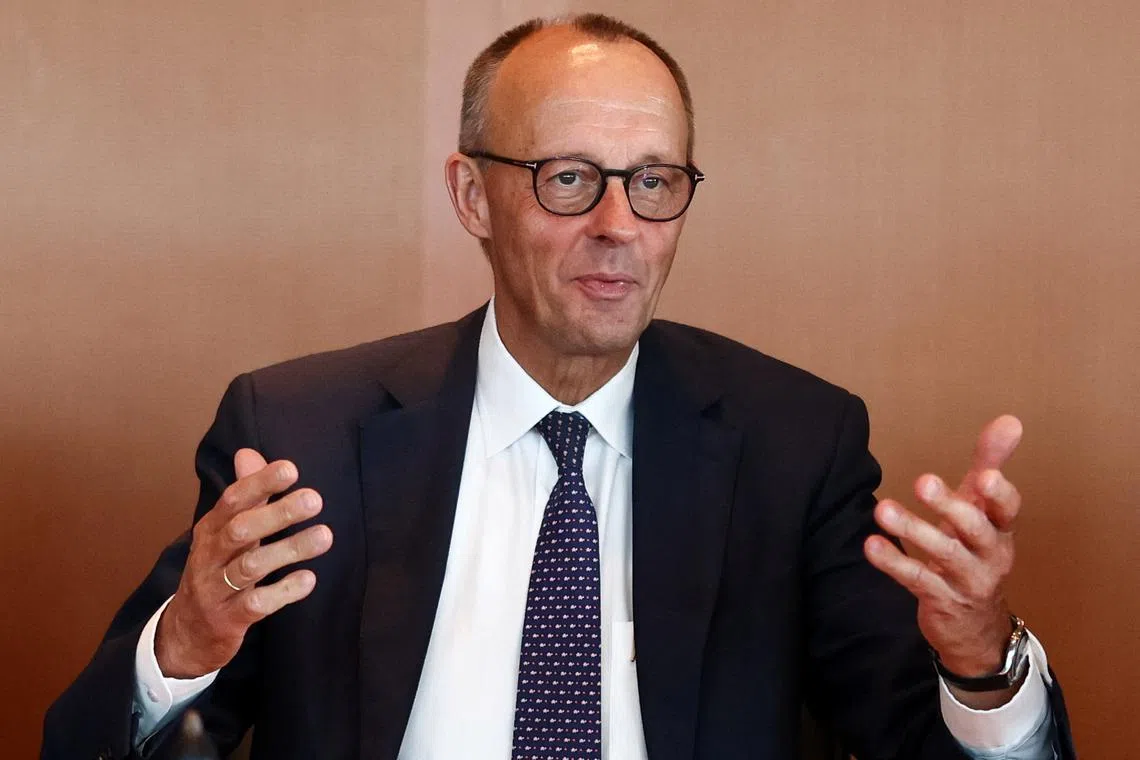Germany halts military exports that could be used in Gaza, says German Chancellor Merz
Sign up now: Get ST's newsletters delivered to your inbox

German Chancellor Friedrich Merz said Germany's top priorities are the release of hostages and negotiations for a ceasefire.
PHOTO: REUTERS
Follow topic:
BERLIN - The German government will not approve any exports of military equipment that could be used in the Gaza Strip until further notice, Chancellor Friedrich Merz said on Aug 8 in response to Israel’s plan to expand its military operations there.
Israel’s political-security Cabinet approved a plan early on Aug 8 to take control of Gaza City
Mr Merz said it was Israel’s right to disarm Hamas and to seek the release of the Israeli hostages.
“The German government believes that the even tougher military action in the Gaza Strip decided upon by the Israeli Cabinet last night makes it increasingly difficult to see how these goals can be achieved,” he said in a statement.
“Under these circumstances, the German government will not approve any exports of military equipment that could be used in the Gaza Strip until further notice.”
Far-right allies in Prime Minister Benjamin Netanyahu’s coalition have been pushing for a total takeover of Gaza as part of his vow to eradicate Hamas militants, though the military has warned this could jeopardise the lives of remaining hostages.
The release of the hostages and negotiations for a ceasefire are Germany’s top priorities, Mr Merz said, expressing deep concern over the suffering of civilians in the Gaza strip.
Germany’s Parliament said in June that export licences for military equipment to Israel worth €485 million (S$725 million) were granted between Oct 7, 2023 and May 13, 2025. REUTERS

